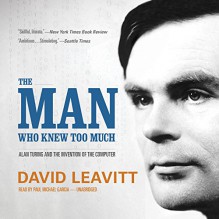 I understand there was an apparent plagiarism issue with this book but I can't find a lot about it online so I'm just not going to focus on it in the review. I am going to look up the author who sued though and read his own work eventually. And I don't know nearly enough about the Spanish Revolution of 1936 so I need to find books on that as well.
I understand there was an apparent plagiarism issue with this book but I can't find a lot about it online so I'm just not going to focus on it in the review. I am going to look up the author who sued though and read his own work eventually. And I don't know nearly enough about the Spanish Revolution of 1936 so I need to find books on that as well.I really got attached to this story and the characters quickly. The prose was fluid and engaging, the author set up 1930s England very well, the character Brian had a clear voice. The supporting characters are great- I loved Lil, I loved Lucy and her Parisian lesbian escapades, Louise was fun, I wish we got to see more of Philippa's sexuality exploration. I got very invested in Brian and Edward's relationship (and extremely frustrated the more Brian slept around (though of course, there's a history here with promiscuity by necessity that I don't want non-gay men criticizing honestly)), which is built up through maybe 3/4 of the novel before the climatic plot moment described in the synopses, where Edward runs off to Spain.
And then... it kind of fell apart. I got less interested the more overwrought it became. When it became obvious that Edward was going to die well before the end, and the last few chapters were Brian grieving I just... lost a lot of interest. I'm so burnt out on stories with gay characters that end tragically like this. I did only set it aside for a few hours before finishing the rest but it was a major let down. Also, after that rant Nigel gives Brian in the very beginning of the story, I can't understand why they hook up afterwards. It felt like a 180 change of personality.
Some bullet point issues I feel are pertinent to address:
-There's one single mention of anything related to transgender people in the entire book, and it's a single line afforded to a 'transvestite whore' that emphasizes the falseness of her eyelashes and her breasts. As if fiction didn't hyper-fixate on how different transgender people are from cisgender people enough, or put trans women into the roles of prostitutes enough. (And you can say, but a transvestite isn't a transgender person! And I will say, the history of conflating them is long, in fact before transsexual existed the only word we had was transvestite.)
-There's one single mention of a Jewish character in the whole book, when the story takes place in the 1930s and frequently references of the horrors of the Third Reich and holocaust, and that Jewish character is a greedy, amoral banker. Does no one see the issue here?
-There are NO people of color, except for a once-mentioned Ethiopian man who Brian apparently has a fling with. He's not named, he's just a description of traits in a list of men. Considering the setting- 1930s London, which has always been a diverse city, a focus on the Communist movement, where working-class people of color would have been involved- there should be way more people of color involved in the story.

 Log in with Facebook
Log in with Facebook 






